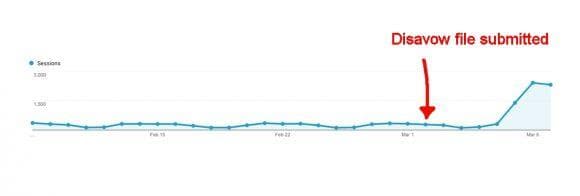
Search Engines
Understanding how search engines work, Google in particular, is important when working in SEO. The basics of crawling and indexing are amazingly useful to understand if you want to rank your own content.
Additionally, Google updates its algorithm several times a year. Understanding the more significant updates, and how they work, can help you to craft content and SEO strategies that are up-to-date.
We've written extensively about how search engines work, and included some of the top resources here. You can also browse the latest posts on search engines from the Moz blog below.
How Search Engines Work : New to SEO? Start with the basics of how search engines operate with our free beginner's guide.
Search Engine Ranking and Visibility : Learn the fundamentals of how search engines rank content on search engine result pages.
Google Algorithm Update History : A complete history of Google algorithm updates since 2000. This includes important links and references for understanding how Google works.
How Search Engines Value Links : Search engines work off a number of signals, but two of the most important are content and links. In this video, Rand Fishkin explains the basics of link evaluation.
MozCast : Is Google updating it's algorithm as we speak? MozCast is the Google algorithm weather report, so you can see how much Google results are changing each day.


Ranking Multiple Domains to Own More SERP Real Estate
Should you rank one site higher in a single position frequently, or own more of the SERP real estate consistently with multiple domains? In this Whiteboard Friday, Rand presents 4 questions you should ask to determine whether this strategy could work for you.
The State of Searcher Behavior Revealed Through 23 Remarkable Statistics
How many words are in the average query? What percent of queries are phrased as questions? Are people really starting more searches on YouTube than Bing? Rand uses clickstream data to answer all the questions about searcher behavior that Google doesn't provide.
Google Algorithmic Penalties Still Happen, Post-Penguin 4.0
Penguin penalties might be a thing of the past, but link-based algorithmic penalties still exist in Google.
SEO Rankings Drop: A Step-by-Step Guide to Recovery
There are hundreds of things that could cause your Google organic rankings to drop. Follow this handy guide to figure out what went wrong, and what you can do about it.
8 Predictions for SEO in 2017
It's that time again friends... That time where I grade my 2016 predictions to see whether I've got the clout and foresight to get another shot in 2017. This year is gonna be really close, as I was more aggressive last year than in prior ones, so let's see where we end up, and what I've got to say for the next 12 months.
SEO Has a Younger Sibling: It’s On-Site Search, and It Deserves Attention
On-site search is a lucrative opportunity for your site, but the vast majority of companies ignore it. Find out what you can do to better understand SEO's younger sibling and apply your learnings effectively.
SEO and Digital Trends in 2017
2016 was an intense year, especially when it came to SEO and Google in particular. Gianluca Fiorelli predicts trends for 2017 based on evidence of what we've seen come to pass.
Goodbye News, Hello Top Stories
Last week, Google launched "Top Stories", replacing news results. What are Top Stories, who's ranking in them, and what does it signal about Google's plans for news?
How to Rank on Google Home
Google Home is a single-result search device, with answers driven by featured snippets. Here are six examples of how featured snippets translate into voice answers.
Google's War on Data and the Clickstream Revolution
SEOs rely on data more than ever, and it seems Google is obscuring, blocking, or removing it at every opportunity. But there is hope, and we call it clickstream data.


